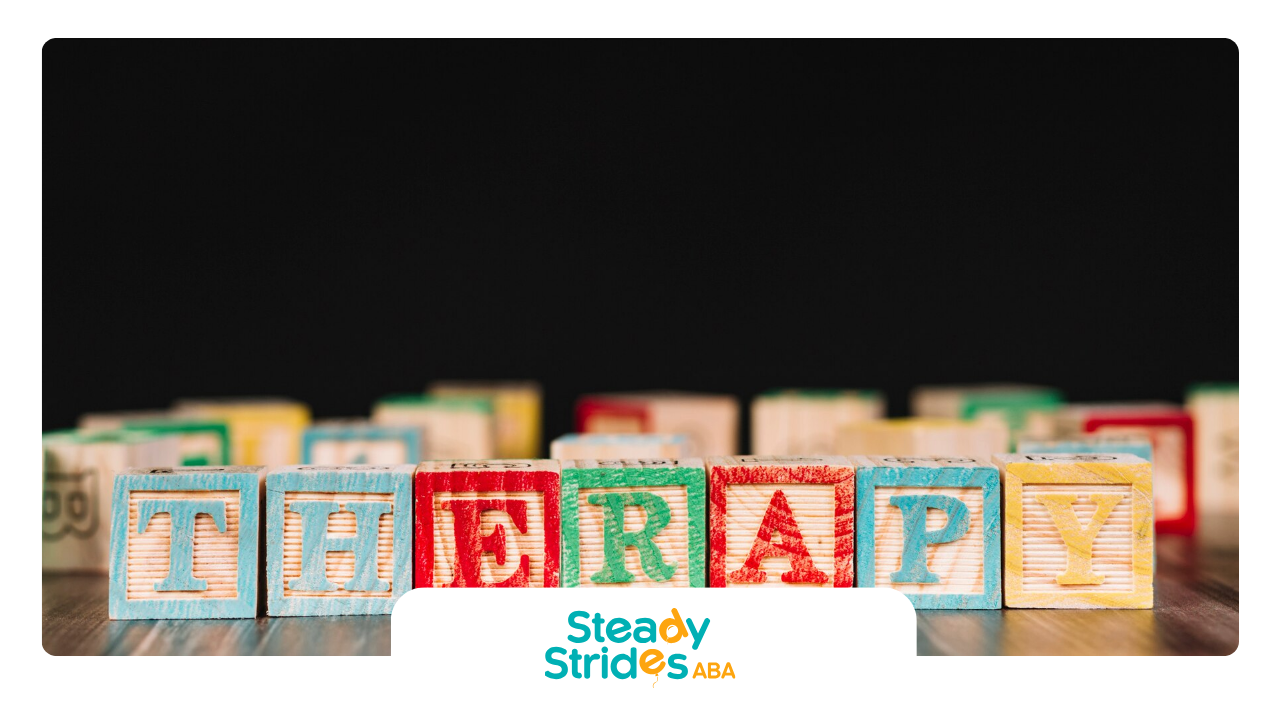Spectrum Disorder (ASD) is a complex developmental condition that manifests in varying degrees across a wide range of individuals. While many people associate autism with challenges in communication, social interactions, and repetitive behaviors, it’s important to recognize that autism exists on a spectrum, which means individuals with the condition can have widely differing levels of intellectual ability and functioning.
One aspect of this spectrum that is often misunderstood is high IQ autism, sometimes referred to as "high-functioning autism" or "Asperger's syndrome" (though the term Asperger's is no longer used in the most recent DSM-5 guidelines). Individuals with high IQ autism may possess exceptional cognitive abilities but still face significant challenges in social interaction, communication, and sensory processing. This blog post will explore what high IQ autism is, how it manifests, and how individuals with this diagnosis can thrive with the right support and strategies.
What is High IQ Autism?
High IQ autism refers to individuals with Autism Spectrum Disorder who have intellectual abilities that are significantly higher than the average population. While IQ scores vary, people with high IQ autism tend to score in the average or above-average range on standardized intelligence tests. This can mean a score of 85 or higher on an IQ test, with many individuals falling within the gifted or highly gifted range (130 and above).
These individuals often excel in areas such as mathematics, music, or abstract thinking, but they may still struggle with the hallmark features of autism—difficulty with social communication, understanding non-verbal cues, and handling changes in routine. Despite their cognitive strengths, individuals with high IQ autism may still experience significant challenges in navigating the social and sensory worlds.
How Does High IQ Autism Manifest?
The traits of high IQ autism can vary greatly from one individual to another, but there are several key characteristics that are commonly observed:
1. Advanced Cognitive Abilities
Individuals with high IQ autism tend to show exceptional abilities in specific cognitive areas. These abilities may include:
- Problem-solving: Many individuals with high IQ autism are excellent problem-solvers, particularly in logical and abstract reasoning tasks.
- Specialized Interests: People with high IQ autism often develop intense interests or talents in specific areas, such as science, technology, music, or art. These interests can sometimes be pursued to an expert level.
- Memory: Exceptional memory, especially in certain fields like numbers, facts, or patterns, is common.
2. Social Communication Challenges
Even though individuals with high IQ autism may excel in academic or intellectual tasks, they often struggle with social communication and interaction. Some of the common social difficulties they experience include:
- Difficulty with non-verbal cues: People with high IQ autism may find it challenging to interpret body language, facial expressions, or tone of voice, leading to misunderstandings in social settings.
- Difficulty initiating and maintaining conversations: Even though they may be able to engage in intellectually stimulating conversations, individuals with high IQ autism might struggle with small talk or keeping conversations going.
- Literal thinking: Many individuals with high IQ autism think literally and have difficulty understanding figurative language, humor, or sarcasm.
3. Sensory Sensitivities
Sensory processing issues are a core feature of autism, and individuals with high IQ autism are no exception. They may experience heightened or diminished sensitivity to sensory stimuli, which can include:
- Sensitivity to sound: Loud or high-pitched noises may be overwhelming or distressing.
- Sensitivity to light: Bright lights, flashing lights, or certain visual patterns can be distracting or painful.
- Sensitivity to textures: Certain fabrics or food textures may cause discomfort or irritation. These sensory sensitivities can significantly impact daily functioning and require special accommodations or strategies for coping.
4. Rigid Thinking and Need for Routine
People with high IQ autism often have a preference for routine and may become distressed if their routines are disrupted. They may have a deep need for predictability in their environment, whether it’s the structure of their daily schedule or the way tasks are completed. Changes in routine can cause anxiety or frustration, and transitions can be particularly difficult.
5. Social Isolation
Despite having advanced cognitive skills, individuals with high IQ autism may find it difficult to form and maintain friendships. Social interaction can feel draining or confusing, and they may struggle with reading social cues or engaging in reciprocal communication. This can lead to social isolation or difficulties in navigating school, work, or family settings.
The Benefits of a High IQ in Autism
While autism presents challenges, having a high IQ can offer many advantages for individuals on the spectrum. High IQ can help individuals excel in academics, professional careers, and creative pursuits. Some of the benefits of having a high IQ with autism include:
1. Academic Success
Many individuals with high IQ autism excel in academic settings. They may have a natural talent for subjects such as mathematics, science, or technology. Their ability to focus intensely on specific subjects can lead to exceptional achievements in these fields.
2. Problem-Solving Abilities
Individuals with high IQ autism often possess advanced problem-solving skills. They may be able to approach problems logically and analytically, breaking them down into smaller, manageable parts. This ability can be particularly useful in scientific research, engineering, or other technical fields.
3. Strong Memory and Attention to Detail
Exceptional memory is a common trait in people with high IQ autism. They may have an excellent recall for facts, dates, and details that others may overlook. This ability can be beneficial in a wide range of careers, including research, writing, and design.
Challenges Faced by Individuals with High IQ Autism
While high IQ autism can present certain advantages, it also comes with its own set of challenges. These challenges can include:
1. Social Struggles
As previously mentioned, social difficulties are common in individuals with high IQ autism. They may struggle to connect with others, especially if their interests differ from those of their peers. This can result in social isolation or difficulties in forming lasting relationships.
2. Mental Health Concerns
Individuals with high IQ autism are at increased risk of developing mental health issues such as anxiety, depression, and obsessive-compulsive disorder (OCD). The challenges of navigating social situations, coupled with heightened sensory sensitivities, can lead to stress and emotional difficulties.
3. Difficulty with Executive Functioning
Executive functioning refers to a set of cognitive skills that include planning, organizing, time management, and self-regulation. Individuals with high IQ autism may have difficulty with executive functioning, which can affect their ability to manage daily tasks, meet deadlines, and stay organized.
4. Misunderstanding or Misdiagnosis
Because individuals with high IQ autism may mask their symptoms, they may not receive an autism diagnosis until later in life. This can lead to a delay in accessing the support and therapies they need. Furthermore, their struggles may be misattributed to other conditions, such as social anxiety or high intelligence, which can result in misunderstandings and a lack of appropriate intervention.
How ABA Therapy Can Help
Applied Behavior Analysis (ABA) therapy is an evidence-based approach that focuses on improving specific behaviors, such as social skills, communication, and adaptive functioning, while reducing problematic behaviors. ABA therapy can be particularly helpful for individuals with high IQ autism by:
- Improving social skills: ABA therapy can teach individuals how to recognize and respond to social cues, make conversation, and build relationships.
- Reducing anxiety: Behavioral interventions can help individuals with high IQ autism manage sensory sensitivities and anxiety in social settings.
- Teaching coping strategies: ABA therapy can help individuals develop coping mechanisms for dealing with changes in routine, unexpected events, or stress.
- Enhancing executive functioning: ABA strategies can also support individuals in developing organizational skills, time management, and task completion.
Conclusion
High IQ autism presents both strengths and challenges. While individuals with high IQ autism may excel in specific intellectual areas, they can still experience difficulties in social communication, sensory processing, and coping with changes in routine. Understanding these challenges and providing appropriate support, such as ABA therapy, can help individuals with high IQ autism thrive in various aspects of their lives.
At Steady Strides, we specialize in offering personalized ABA therapy services that cater to individuals with autism of all levels, including those with high IQ. Our goal is to provide the tools and support necessary to help individuals build social, communication, and daily living skills, enabling them to lead fulfilling lives.
Frequently Asked Questions
Can a person with high IQ have autism?
Yes, individuals with high IQ can have autism. Autism is a spectrum disorder, and it affects people of all intellectual abilities, from those with intellectual disabilities to those with high IQ.
How do I know if my child has high IQ autism?
Children with high IQ autism may show exceptional abilities in specific areas, such as math, music, or memory, while also exhibiting challenges in social communication and sensory processing. If you suspect autism, it’s important to consult with a healthcare professional for a formal evaluation.
Can ABA therapy help individuals with high IQ autism?
Yes, ABA therapy can be highly beneficial for individuals with high IQ autism. It helps improve social skills, communication, coping strategies, and executive functioning, providing support for a better quality of life.
Resources:
- https://pmc.ncbi.nlm.nih.gov/articles/PMC4927579/
- https://www.verywellmind.com/what-is-a-genius-iq-score-2795585
- https://www.autismspeaks.org/sensory-issues
- https://www.kcl.ac.uk/archive/news/ioppn/records/2018/march/high-iq-autistic-people-learn-social-skills-at-a-price
- https://www.leicspart.nhs.uk/autism-space/health-and-lifestyle/autism-and-executive-functioning-skills/












